Sunday, February 22, 2009It is Sunday here in Tupelo—just barely. I looked at the clock a moment ago and it read 12:03 AM. Once I send this sermon out, I’m going to bed. We have been on the road a lot lately. Four weeks ago we were in New York. Three weeks ago I was in New Brunswick. Two weeks ago we were in Chicago. And last weekend we were in California. After all that coast-to-coast travel, it’s good to be home for a few days. This Tuesday (February 24) I’m going to be doing a broadcast on American Family Radio from 11 AM-12 Noon Central Time. You can hear the program by clicking on the link and then clicking on “AFR Talk."
Don’t forget that you can connect with us on Facebook or Twitter.This week’s brand-new podcast is called Come Before Winter.There is a lot more going on right now, including plans for our trip to the Philippines next month and the Holy Land tour in October.Thanks again for supporting us in prayer and with your gifts. This ministry depends entirely on friends who believe in what we are doing. You can give by mail or via our online giving option.You can find my daily weblog with the latest personal news, updates on Dudley and Gary, links to interesting articles, commentary on current events, travelogue and biking updates (138 miles YTD) at Keep Believing and Crosswalk. That's the news from my corner of the world. I hope you have a wonderful week.Ray Pritchard-----------------------------------Keep Believing MinistriesTupelo, MississippiFebruary 22, 2009
Miracles Come in Many VarietiesHebrews 11:33-38
By all accounts, the best definition of faith in the Bible is found in Hebrews 11:1, "Now faith is being sure of what we hope for and certain of what we do not see." The King James Version translates it this way: "Now faith is the substance of things hoped for, the evidence of things not seen." The word that is translated "substance" or "being sure of" comes from a Greek word that means "to stand under." It is the firm reality which stands under something, like a foundation "stands under" a house. In a similar sense, it could be used to refer to the title deed to a piece of property. Faith, then, is the solid foundation upon which we build our lives. It is like the title deed to the things we are hoping for. It gives "substance" to our dreams. The word translated "evidence" or "certain of" comes from a Greek word that was used for the legal proof needed to back up an accusation. Faith in that sense is the inner conviction that God will keep his promises. Faith is like the evidence that is offered in a courtroom. It produces an inner conviction that certain things are true. Faith makes real the things we hope for. It gives inner conviction to our dreams. Faith makes the things we hope for so real that it is as if we already had then. By faith, we "see" things that do not yet exist. A Simple Definition Of FaithLet me give you the best definition of faith I've ever heard. Faith is belief plus unbelief and acting on the belief part. We all know that belief is involved in faith. You have to believe something before you can have faith. If you go to a doctor, you must believe he can help you. If you don't believe, you'll never go in the first place. Before you step into an elevator, you've got to believe it will hold you up. If you don't believe, you'll end up taking the stairs. So belief is always the first part of faith. It is the conviction that certain things are true.Unfortunately, some people stop their definition of faith right there. They think faith is belief plus nothing else. Faith to them is pure belief without any mixture of doubt. That's okay as long as you stay in your house, in your bed, and under the covers. But in this world, it's hard to arrive at 100% certainty about anything. You hope the doctor can help you, but maybe he's really a quack. You hope the elevator will hold you up, but maybe the cable has gone bad. People who truly believe that faith means 100% certainty are paralyzed. They are waiting for something that will never happen. In truth, there is always unbelief mixed in with our belief. You see it best in the big decisions of life. You get a good job offer in another part of the country. It's a great opportunity, but you don't want to move. You are stuck in your present job, but the kids are happy in school. Your wife doesn't want to move, but you've found twice the house for half the money. You think you should, but some of your friends aren't sure. Late at night you toss and turn, first going one way and then going another. That's reality. You don't have 100% certainty and you don't know of any way to get 100% certainty. You think so, you hope so, you pray for guidance, you seek counsel, you write it all down, you wait for a lightning bolt from heaven but it never comes. What is faith? In the big decisions of life, faith is not waiting for 100% certainty. Faith is wavering between belief and unbelief, doubt and assurance, hope and despair, and finally, hesitantly, with your heart in your hands, acting on the belief part. Let me put this very clearly. Many people think "living by faith" means staying over in the "Belief" column until you get certainty. But that almost never happens. That's not "living by faith;" That's "stalling by faith." Living by faith means acting on the belief part. It means taking a step of faith, however small, however halting, however unsure of yourself you may be.And The Walls Came Tumblin' DownGo back and take a survey of Hebrews 11 and see if it isn't so. Faith always means taking action. Look at the list. By faith . . . Abel offered a better sacrifice (v. 4), Noah built an ark (v. 7), Abraham left Ur of the Chaldees (vv. 8-10), he offered his son Isaac (v. 17), Moses left Egypt (v. 27). And consider the example of the walls of Jericho (v. 30). The Hebrews marched around the walls once a day for seven days. Can you imagine the scene? Thousands of Jews line up the first day to march around the city. In front are the priests with the Ark of the Covenant. They march around singing and laughing. Inside the pagans are scared to death.Nothing happens. The next day the Jews march around again. And nothing happens. On the third day they march around again. And nothing happens. Only this time the people inside are starting to relax. On the fourth day they march around again. And nothing happens. This time some garbage flies over the wall. The people of Jericho are shouting insults at the people of God. On the fifth day the same thing. On the sixth day the same thing. But on the seventh day, as they march around the city, the trumpets start to play and the people let out a shout. And in one miraculous moment, "the walls came tumblin' down." That's it. That's how faith works. Don't you think there were some doubters? Don't you think there were some critics? Don't you think there was some grousing in the ranks? Sure there was. These are real people who are tramping around in the hot sand day after day. It's hot and nasty and extremely frustrating. But they did it. That's "acting on the belief part." And when they took the step of faith, God honored it and the walls of Jericho fell to the ground. Let me say it again. Faith is belief plus unbelief and acting on the belief part. Don't worry about your doubts. Faith is always mixed with doubts. When you finally get up the courage to act on the belief part, in spite of your doubts, then you are truly living by faith.The Triumphs of FaithBut there is more to the story than that. If I left the matter there, I would be leaving a very incomplete picture. It sounds too easy. But living by faith is often very difficult. And it doesn't always end up the way we would like. Does living by faith mean you will always receive a miracle? The answer must be no. Consider again the heroes of faith in Hebrews 11. Only this time let's go to the end of the chapter. Verses 33-35a record the Triumphs of Faith:
Who through faith conquered kingdoms, administered justice, and gained what was promised; who shut the mouths of lions, quenched the fury of the flames, and escaped the edge of the sword; whose weakness was turned to strength; and who became powerful in battle and routed foreign armies. Women received their dead back to life again.
These wonderful examples teach us that God sometimes intervenes on behalf of his people in miraculous ways. Sometimes those miracles occurred in the heat of combat where a vast army was defeated by the faithful people of God. We have only to read the story of Shadrach, Meshach and Abednego in Daniel 3 to understand that what it means to quench the fury of the flames. The phrase “women received their dead back to life again” refers to the widow of Zarephath in 1 Kings 17 and the Shunammite woman in 2 Kings 4. In all these examples the writer calls to mind people who found themselves in humanly impossible situations. When they cried out to God, he delivered them. Christianity is a religion of miracles. Take the miraculous out of our faith and you are left with nothing but a set of ethical instructions that has no power to change the heart. Subtract the miracles and suddenly Christianity becomes just another religion. Without the miracles, we have no good news to share with the world. And the Bible is a book of miracles from first to last. Take the miracles away and suddenly the Bible is no longer the Word of God. It's just another book. You can no more take miracles out of Christianity than you can take light from the sun. Without the light, there is no sun. Without the miracles, there is no Christianity. After all, our faith rests on two stupendous miracles. First, we believe that God became a man. Second, we believe that that man (the Son of God) rose from the dead. If we are not astounded by that, we should be. It’s not just that Jesus worked miracles. It’s that he himself entered and exited this world by miraculous means.So we should read Hebrews 11 and think, “These things happened. And they may happen again at any time.” But since God is God and we are not, miracles are not ordered up the way we order pizza on Friday night. God doesn’t work for us. It is right at this point that we come to the core issue regarding miracles. You can't read the Bible without running into miracles, but they don't happen all the time, and you can't predict in advance when they will happen. That fact ought to us help us as we think about miracles today. In one of his books, William F. Buckley quotes British author Evelyn Waugh who said, "God does work miracles, but it is presumptuous to anticipate them."We believe in miracles! And we pray and fervently believe and hope and trust and wait for miracles to occur. But we understand that God works according to his own will, and that we cannot anticipate miracles even as we pray and wait and hope for them. The Trials of FaithSo the first part of the list is wonderful and should inspire us to trust God for amazing things, especially when we face the impossibilities of life. But that is only part of the story. Verses 35b-38 record the Trials of Faith:
Others were tortured and refused to be released, so that they might gain a better resurrection. Some faced jeers and flogging, while still others were chained and put in prison. They were stoned and they were sawed in two; they were put to death by the sword. They went about in sheepskins and goatskins, destitute, persecuted and mistreated—the world was not worthy of them. They wandered in deserts and mountains, and in caves and holes in the ground.
Who are these poor, benighted souls? What have they done to deserve such punishment? The writer simply calls them "others." They are "others" who lived by faith. These men and women who endured such torment were living by faith just as much as Noah, Abraham, Moses or Joshua. Their faith was not weaker. If anything, their faith was stronger because it enabled them to endure incredible suffering. They are not "lesser" saints because they found no miracle. If anything, they are "greater" saints because they were faithful even when things didn't work out right.We need to see this clearly.“Others were tortured.” God does not always stop the hand of the persecutors. “Others were chained and put in prison.” Some of God’s finest saints can be found behind prison walls.“They were sawed in two.” Tradition says this is what happened to the prophet Isaiah.“They were put to death by the sword.” That still happens today.“They world was not worthy of them.” Their suffering was a gift from God to the world.(To learn more about the persecuted church, go to the Persecution Blog or to International Christian Concern or to Compass Direct.) Please get it clearly in your mind that these “others” who suffered did not lack faith. The whole point is, they had great faith and they suffered anyway. There was nothing wrong with their faith. Nothing! They were just as pleasing to God in their agony as the saints who were delivered by great miracles. Some were delivered.Some suffered and died.All lived by faith.God was pleased with all of them.That’s the real message of these closing verses of Hebrews 11. Remember that miracles come in many different varieties. I had a friend with cancer who prayed and prayed that he might be healed. Eventually he decided that he would not pray that way anymore, not because he thought it was wrong but because he asked himself, “Will God be glorified more by my healing or by my faith being strong even if I am not healed?” Great question, exactly the right way to look at it, and only God knows the answer. So he prayed that God would be glorified whether by healing him or by giving him strength to keep believing no matter what. That strikes me as the right biblical balance. And in the larger sense, which is the greater miracle, the parting of the Red Sea or the pastor in Yemen who is arrested and beaten for his faith and continues to preach the gospel anyway? Miracles come in many varieties. Some are outward and spectacular. Some are inward as God gives strength to his children as they suffer for him. Who’s to say which is greater?In light of that, let me revise my definition of faith. Faith is belief plus unbelief and acting on the belief part without regard to the consequences. Living by faith means you take a step of faith without knowing where it will lead you. If you are Noah, you build the ark and hope it floats. If you are Abraham, you set out for the Promised Land and hope you find it before you die. If you are David, you step into the valley to face Goliath and you pray that you kill him with the first stone because you won't get a second chance. Sometimes it works out the way you hoped. Other times it doesn't. Faith means you step out with no guarantees. TelemachusThis week I read again the story of Telemachus. You can find it in Chuck Colson's book Loving God, pp. 241-243. It's a true story about an Asiatic monk who lived during the early part of the fifth century.
One day, as he was tending his garden at the monastery, he felt God calling him to go to Rome. He had never been there and had no idea why God would want him to go. But the feeling grew stronger until Telemachus knew he must make the long journey. So he set out across Asia Minor and caught a boat for Rome. After many days he landed and made his way to the Imperial City. When he got there, he found that the city was in the midst of a great celebration. The Romans had just defeated the Goths. Telemachus still had no idea why he had come but he noticed great crowds moving through the streets toward the famed Coliseum. He followed the crowds and thought to himself, "Perhaps this is the reason why God has called me here." It turned out that the crowds had gathered for the gladiator contests. That meant that men would fight against men on the arena floor until only one man was alive Then the wild animals would be let loose to devour the body of the dead gladiators. It was a violent, bloodthirsty sport. The crowds had come to watch the action.At length, the gladiators marched in, saluted the emperor and shouted, "We who are about to die salute thee." Then the games began. Telemachus was shocked. He had never seen such a thing. But he knew that he could not keep silent while men killed each other for entertainment. In a flash of blinding insight Telemachus knew what he must do. He ran to the perimeter of the arena and cried with a loud voice, "IN THE NAME OF CHRIST, STOP!" The crowd paid him no heed. He was just one voice among thousands. So Telemachus made his way to the edge of the arena and stepped onto the sandy floor. There he was, rushing here and there, dodging the gladiators as they thrust at each other. He cried out again, "IN THE NAME OF CHRIST, STOP!" The crowd began to cheer, thinking perhaps that he was part of the entertainment, like a clown at a rodeo. Then he blocked the vision of one of the gladiators causing him to narrowly avoid a death-dealing blow. Suddenly the mood changed and the crowd became angry. "KILL HIM! KILL HIM! KILL HIM!" The gladiator he had blocked took his sword and struck Telemachus in the chest. Immediately the arena floor turned sandy red from his blood. The little monk fell to the ground and as he died, he cried out for the final time, "IN THE NAME OF CHRIST, STOP!" Then a strange thing happened. A hush fell over the arena. All eyes were focused on the still form in the crimson sand. The gladiators put down their swords. One by one the spectators left their seats and emptied the Coliseum. Historians tell us that was the last gladiatorial contest in the Roman Coliseum. Never again did men kill men for entertainment in the arena. When Telemachus died, the gladiator contests died with him.
Think about that story for a moment. Was Telemachus a man of faith? Yes. Did he obey God? Yes. Did he have his doubts? Certainly. But he acted on the belief part without regard to the consequences. Living by faith, in the end, meant dying by faith. But he made a difference in the world. And the strength to live and die for Christ is as much a miracle as being delivered from the lion’s den. We can safely draw three conclusions about those who live by faith:
1) They will see great triumphs and endure great trials.2) They will be misunderstood by the world.3) They will be glad they did what they did in the end.
Christ calls us to follow him wherever he leads, whatever it costs. And the word of Christ to all of us is always the same, “Come, follow me.” Try it out. Come to him. Put your life in his hands.I wish I could promise you a long life and much happiness but I can’t. You may live to be 90 or you may die tomorrow. Your path may be easy or it may be an unending struggle. If you decide to live by faith, there are no guarantees. You may end up witnessing vast miracles or you may be counted among the “others” who suffer for Jesus Christ. I cannot promise you an easy road if you decide to follow Jesus Christ. But I can promise you this. You will be blessed and you won't be sorry. And in the end, you will discover that the life of faith is full of adventure, and you will be glad you weren't a couch potato but dared to make a difference in the world.
Forward this message to a friend
Please email us if you are having trouble accessing this email or if the formatting of this message looks incorrect. Let us know what email application you are using (e.g. Outlook, Gmail, Thunderbird, etc.) Also: Please send us a screenshot if you are able to.
© 2008 Keep Believing MinistriesDr. Ray PritchardAll Rights Reserved
วันจันทร์ที่ 23 กุมภาพันธ์ พ.ศ. 2552
สมัครสมาชิก:
ส่งความคิดเห็น (Atom)
เกี่ยวกับฉัน

- คริสเตียนไทยรับใช้พระเจ้า
- พวกเราเป็นกลุ่มคริสตจักรท่มีความเชื่อตามหลักของพระคัมภีร์อย่างเคร่งครัด เราเชื่อว่า เรารอดโดยพระคุณพระเจ้า และเชื่อในตรีเอกานุภาพ และพระคัมภีร์66เล่มเป็นการดลใจจากพระเจ้าและไม่มีความผิดพลาดของต้นฉบับ และพระวจนะของพระเจ้าเป็นแหล่งชีวิตและความจริง เป็นหนังสือท่ช่วยในการดำเนินชีวิตประจำวัน เราเชื่อว่าเมื่อเราเชื่อในพระองค์เราได้รับองค์พระวิญญาณบริสุทธิ์ในทันใดนั้น เพราะทรงประทับตราเรา ( เอเฟซัส 1:13-14)

























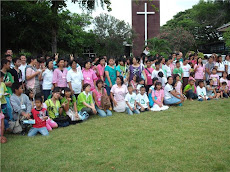

















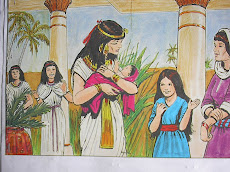

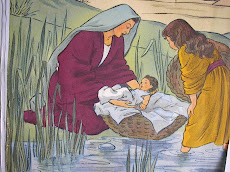




























































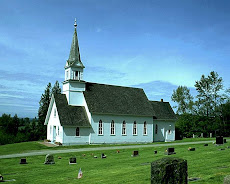





























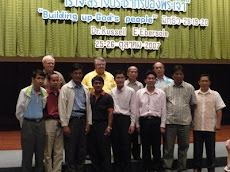
ไม่มีความคิดเห็น:
แสดงความคิดเห็น